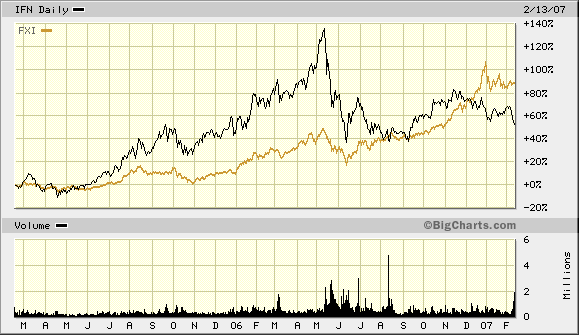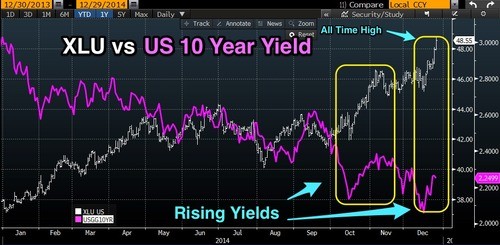Goldman Sachs Sees Correlation Boost From Sector ETFs
Post on: 12 Апрель, 2015 No Comment

Goldman Sachs Sees Correlation Boost From Sector ETFs
January 6, 2012
(Bloomberg News) Stock prices are being increasingly influenced by the trading of exchange-traded funds, with real estate investment trusts as well as energy and consumer companies most affected, according to a Goldman Sachs Group Inc. study.
REITs and energy companies accounted for eight of the top 10 firms in the Standard & Poor’s 500 Index whose trading volume was most driven by trading in ETFs, Robert D. Boroujerdi, a Goldman Sachs analyst, and three colleagues wrote in a paper released today. Consumer retailers accounted for the five most affected companies in the Russell 2000 Index, which tracks small-capitalization stocks.
ETFs have come under increased scrutiny in the past two years over whether their trading has increased market volatility and correlation between individual stocks. The growing impact of ETF trading on the price movements of individual stocks has discouraged some companies from publicly listing, according to Harold Bradley, chief investment officer at the nonprofit Ewing Marion Kauffman Foundation, who testified in October before a Senate subcommittee examining the impact of the products.
The Goldman Sachs analysis is aimed at showing investment managers which sectors are most conducive to single-stock selection and which are more macro bets, Boroujerdi, the New York firm’s co-director of Americas equity research, said in an e-mail.
ETF Assets Soar
ETFs, including exchange-traded notes and trusts, held $1.54 trillion in assets worldwide at the end of November, according to data compiled by New York-based BlackRock Inc.
Correlation between the share prices of companies within the same industry groups has increased as ETF assets and trading volume have soared, the study said. Higher correlations indicate that stock prices are rising or falling in tandem.
Global ETF assets rose 70 percent from the end of 2007 through November 2011, faster than mutual fund assets, which are roughly in line with their 2007 levels, Goldman Sachs said, citing data from the Investment Company Institute and BlackRock. While equity ETFs have less than 10 percent of assets held by their mutual-fund counterparts, they account for 25 percent to 30 percent of total equity dollar trading volume. That volume is up from 10 percent to 15 percent in 2004, according to the study.
ETF investors tend to concentrate their industry-focused bets in relatively few products, according to the study. The 20 most heavily traded ETFs that invest in a specific industry accounted for 85 percent of the total average daily value traded among all U.S.-listed sector ETFs with assets of at least $100 million, Goldman Sachs said, citing data compiled by Bloomberg.

Companies included in three of the four most actively traded industry ETFs showed a higher correlation at the end of 2011 than during the financial crisis of 2008 and 2009, the study said.
The report examines the relationship between ETFs and correlation on an industry group level and there is an impact, Boroujerdi said in the e-mail.
Stage Stores, FMC
The Goldman Sachs analysts also estimated the impact of ETFs on the trading volume of individual stocks. Smaller companies were more affected. Among Russell 2000 companies, three had more than 60 percent of their volume driven by ETF trading, led by Houston-based retailer Stage Stores Inc. at 66 percent.
Among S&P 500 companies, Houston-based FMC Technologies Inc. an offshore-drilling technology firm, topped the list with an estimated 23 percent of volume driven by ETF trades.














